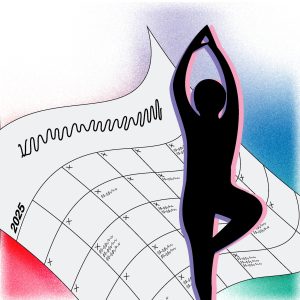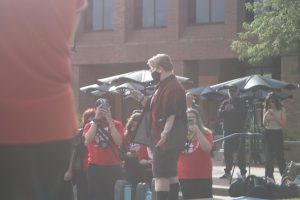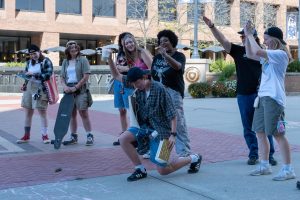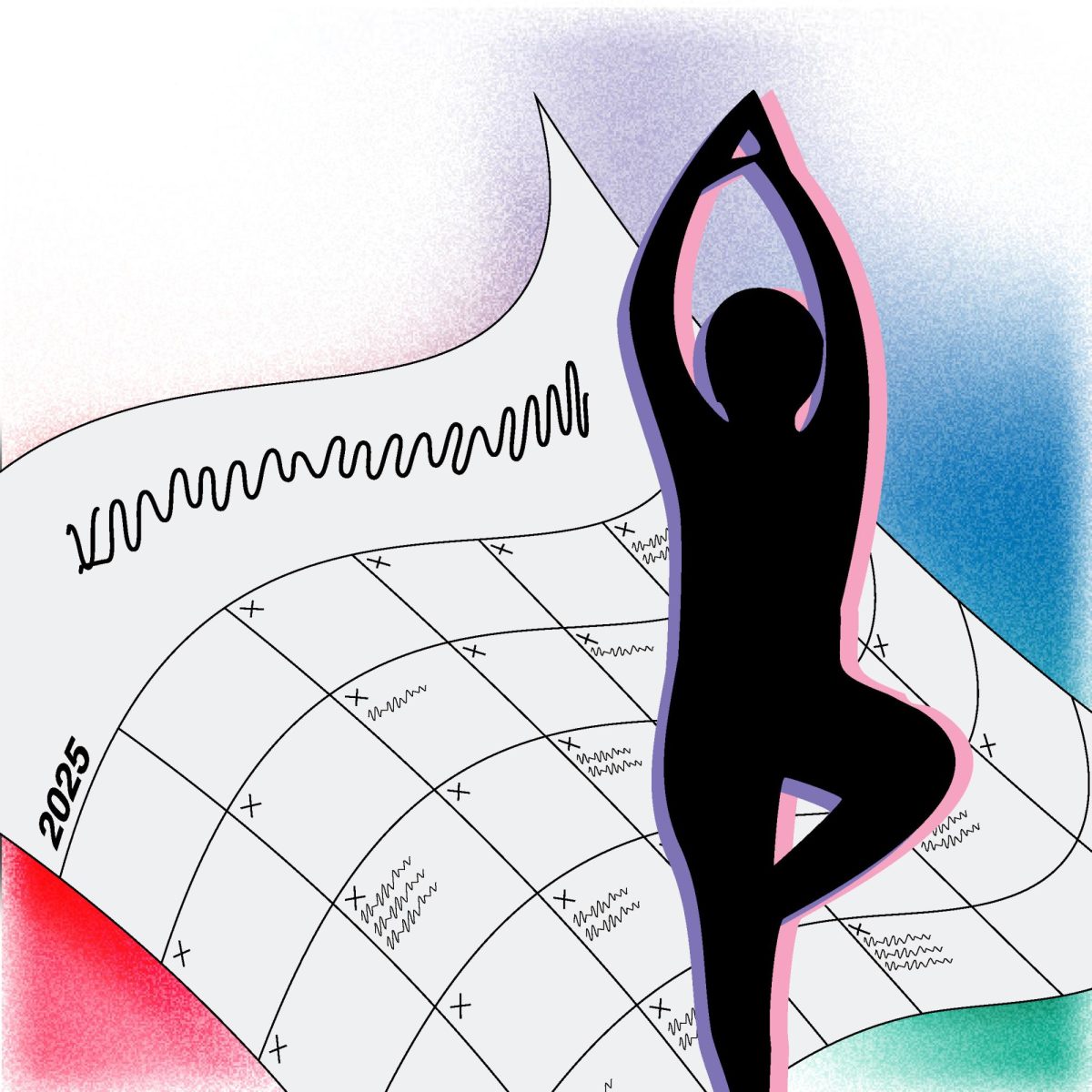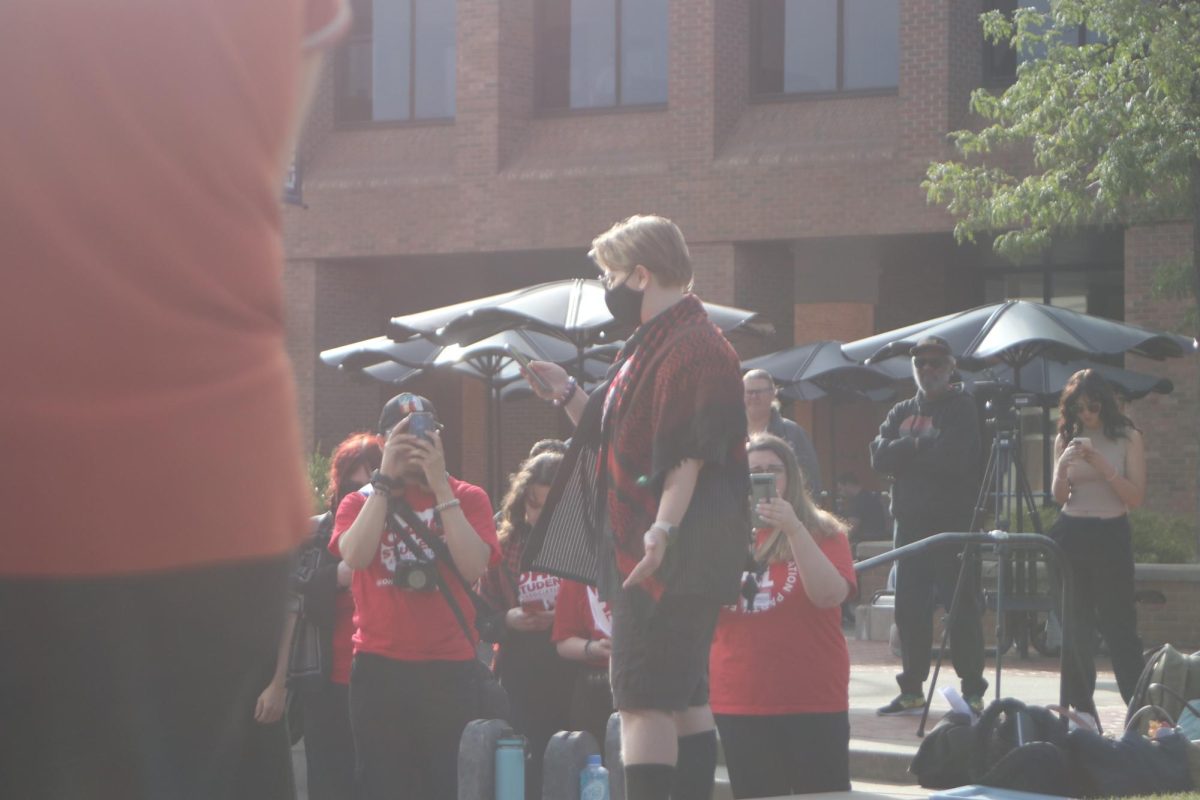Illustration by Elliot Burr
All photographs by Anastasia Lawrence
The recent passing of Supreme Court Justice Ruth Bader Ginsburg on Sept 18 seemed to be another ruthless tragedy in a string of awfulness that this year has brought. People were deeply distraught, both at the loss of a remarkable woman and what the next nomination to the Supreme Court would bring to the current and future generations of Americans; this mostly comes from the fact that the nominee, Amy Coney Barrett, would place the Supreme Court in a mostly right-leaning position. If the Supreme Court is in this position, it could impact the rights of vast groups of people, from women to African Americans. The death of one woman is a symbol of the uncertainty of the future; RBG was a symbol of putting your foot down to get the change you desire. She was a pioneer, being the first Jewish woman who served on the Supreme Court. This, along with her experience as a woman in law circles led her to be an innovator in gender and social law.

While the population as a whole was collectively panicking over who was going to be nominated next, one Akron activist group decided to hold a vigil in honor of RBG. Another event within the same week, the lackluster verdict in the trial of the shooting death of Breonna Taylor, led to nationwide protests. The Akron Minority Council [AMC], the student-led activism collective holding the vigil, decided to honor the lack of justice for Taylor as added protesting and sign- making to the event as well.

Photo by Anastasia Lawrence
The events of Saturday, September 26 did not start until about 4:30 pm. Two members of the AMC, president Bree Chambers, and public relations executive Lindsey Sipplen arose on a wooden picnic table at Akron’s Hardesty Park, megaphone in hand, to make speeches to the increasing crowd. Sipplen went first, sharing her perspective on the life of RBG.
“She was really someone that we needed to do exactly what she did when she did it, and we do not see that often. I cannot imagine how our world would look right now if we never had Justice Ginsburg (…) But personally, I have always admired how Justice Ginsburg has always questioned the status quo. She never let other people’s opinions dictate how she lived her life. She changed the things that she could not accept.”

Photo by Anastasia Lawrence
Chambers followed next, starting with the tendency to lack brevity when speaking. However, Chambers’ lack of brevity is truly awe-inspiring when you listen to her speak about her activism journey and how all these events blend into her identity as a young black woman. “As a student, a student who like my peers was often forced to see the headshots of peoples our age on the news at yet another school shooting, I saw the implications of police brutality and racism on my identity as a Black American,” Chambers said. “I still continue to see that in the way that Breonna Taylor verdict this past Thursday.”
Chambers then went into how while the world of activism loves to discuss women’s rights, it’s often still a boys club.
“Perhaps the most jarring of these lessons has been that for as much advocacy as women often require, the world of activism is not a woman’s world. The activism circuit is rife with sexism, which adds to the myriad of challenges that activists inherently face. Women in this line of work are consistently silenced and painfully made victims of relentless condescension.”
To round out her speech, Chambers eloquently tied both the lack of justice for Taylor and the beloved memory RBG together to make a statement about how to treat female activists.
“To be a woman who does her level best to fight for the right thing is an honor and a privilege (…) I ended that Facebook post [about RBG] with this. ‘Ladies, may your garden bloom and may the harvest be bountiful and may you reap tenfold of what you sow. Because so many do not have the good fortune of receiving their flowers while they are still here to enjoy them.’”

Photo by Anastasia Lawrence
Once the two completed their speeches, it went into a half an hour period to organize before marching. The crowd was encouraged to create their own signs, related to RGB, Black Lives Matter or whatever cause they desired to promote. AMC volunteers also continued to run a voter registration booth.
After the lull of activity, the marching started swiftly, heading toward the heavily trafficked area outside of Hardesty Park. It was during rush hour; cars soared through the numerous intersections beside where the crowd began to march and chant in unison. “Say Her Name” with the response of “Breonna Taylor” was chanted the most during the rally. It was called at the constantly passing cars, many of whom honked and thumbed up with support, showing the anger the court of public opinion has to the injustice on behalf of Taylor.

Photo by Anastasia Lawrence
The crowd wandered all around the busy shopping plazas, keeping their call and responses loud while they moved spots. The sun was shining in the eyes of all, but they kept persistent and loud in their chanting. Due to the small size of the assembly, about 20 people created a sense of comradery and a pleasant atmosphere among the members. This added a touch of fun, such as the collective laughter whenever a response or call was flubbed up.
The marching lasted for about 40 minutes, after which the congregation trod back to the meeting spot in Hardesty Park. A retired Rabbi, David Horowitz, arrived to give a beautiful eulogy for Justice Ginsburg. He said he wrote the eulogy from the perspective of Ginsburg’s Jewish heritage and how that was frontal to both her identity and her judicial practices.
“What was her life like as a Jew? Yeah, that just as a justice but as a Jew. That her heritage permeated almost every being. From that perspective her decisions reflect deeply Jewish values and Jewish heritage.”

Photo by Anastasia Lawrence
The sun was beginning to slow down behind the horizon as little white candles were passed around and lit, with many blocking the wind from knocking out their small flames. The sky was evolving from a bright blue into a soft rose slow, beautiful timing for a small moment of silence for RBG’s impressive legacy was initiated and just as quickly as it started, the event was over.
It was an intimate act of power. It was not a sad occasion, as vigils typically are, but more of a scene of quiet but collective influence. RBG was a powerhouse woman, affecting change on a massive and small scale; having both big and small vigils for this remarkable person is very important. Her absence is also a political pawn, with Trump choosing his nomination while the protest was going on. No matter what continues to happen in the future, gatherings like this will continue to happen. RBG’s death was yet another trip in the marathon that has been 2020, however, even the most important of losses will not stop the time from ticking. People will continue to fight for their deserved rights no matter what, and RBG was a true symbol of that determination that will continue to inspire.


